Jared Simons
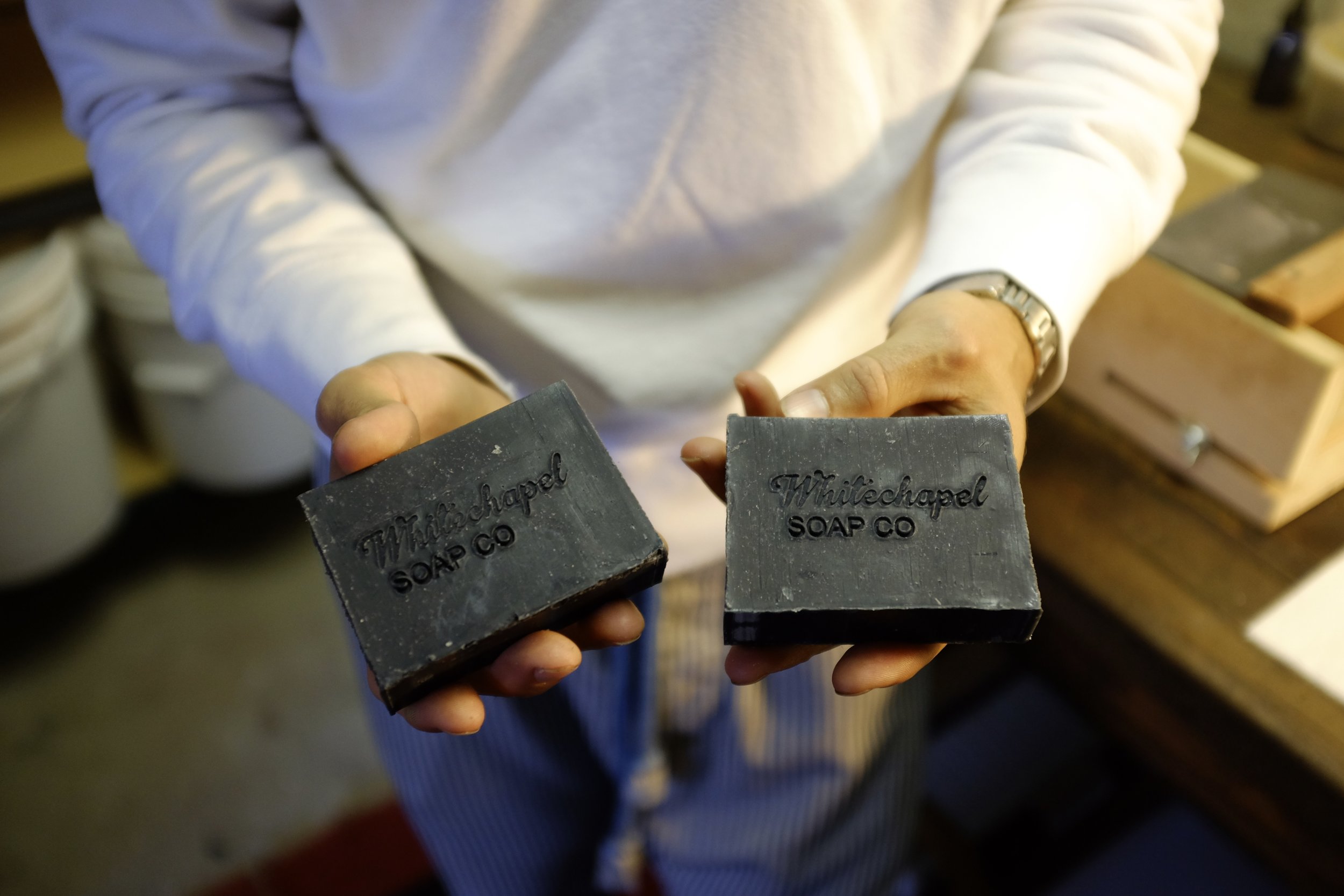
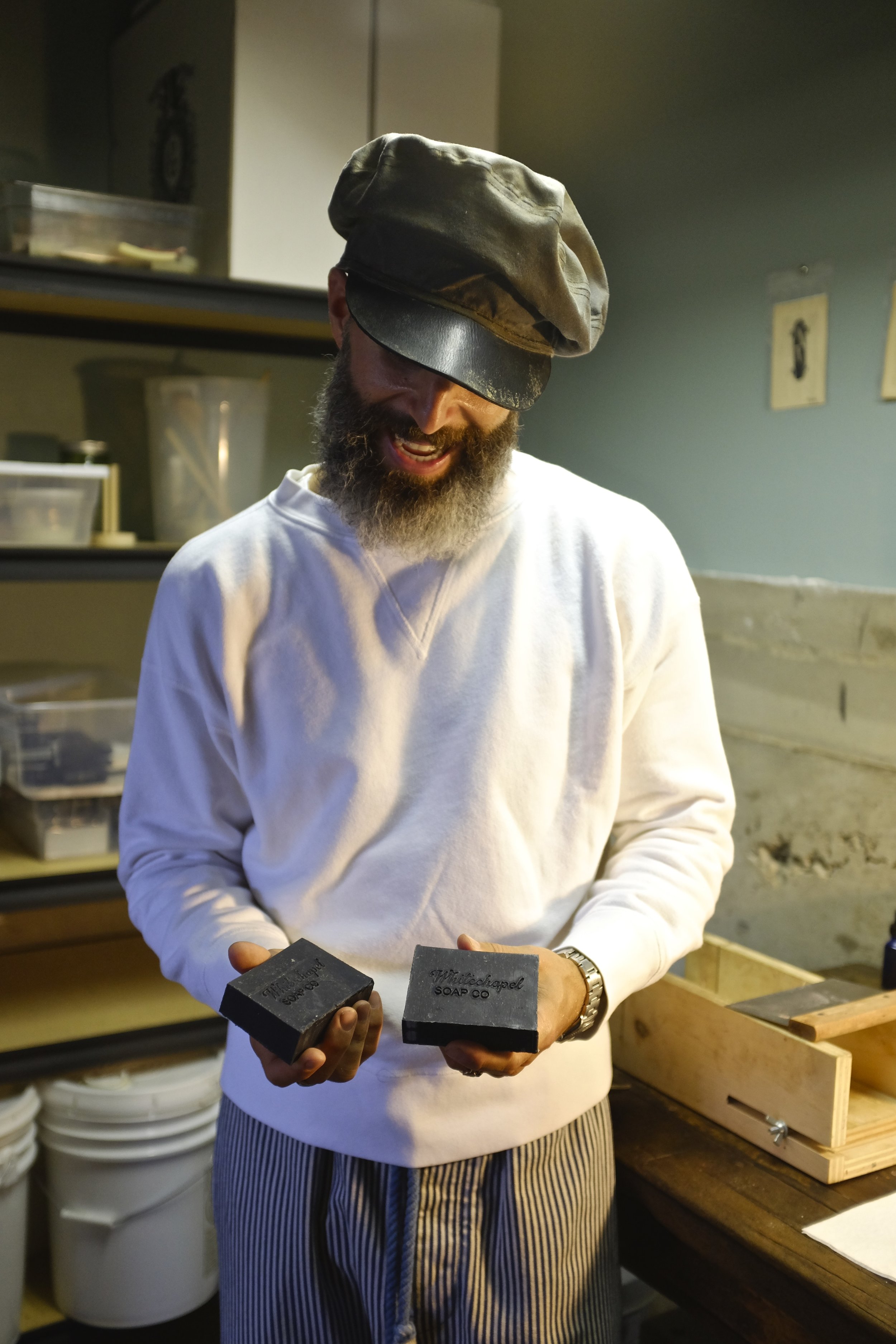
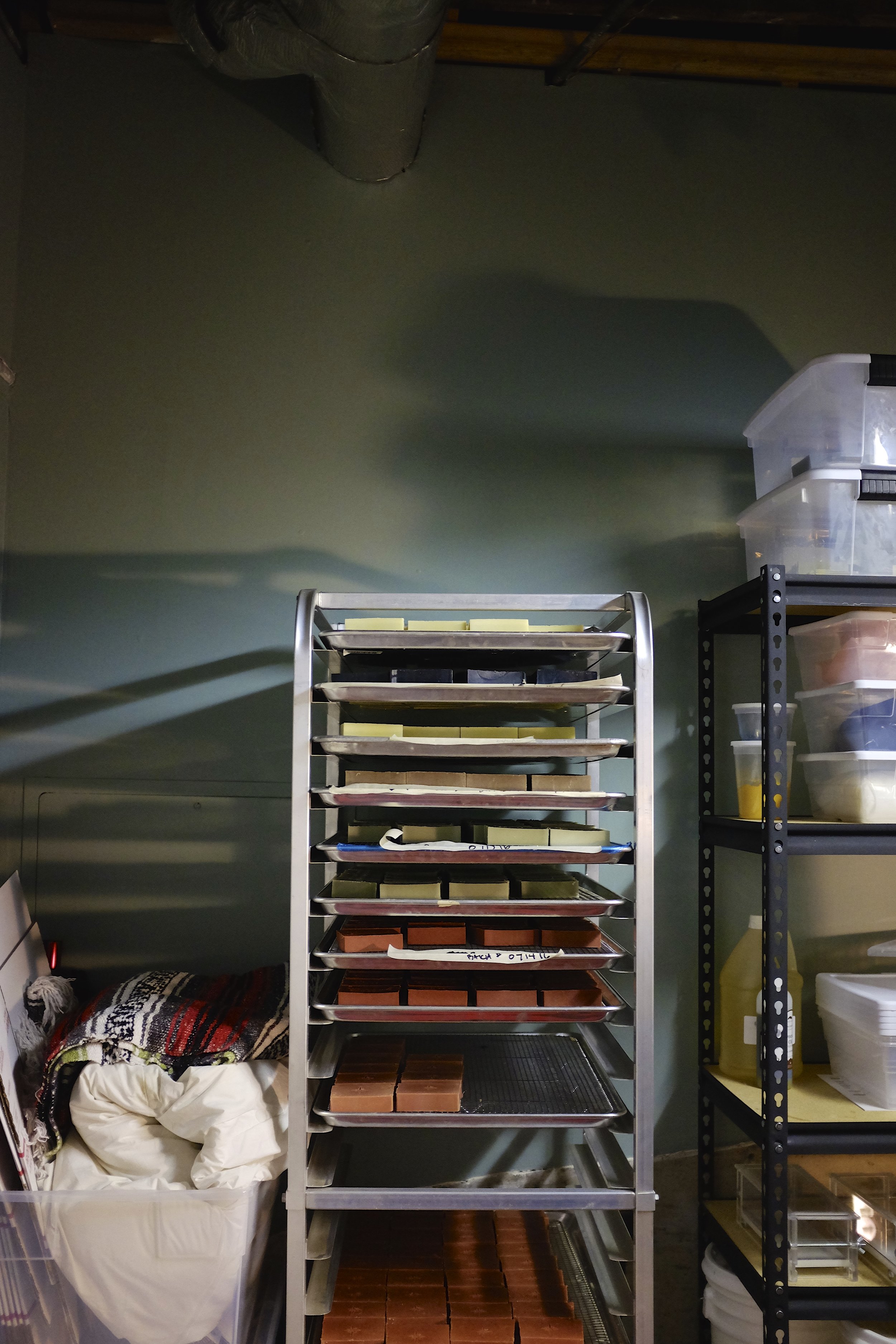
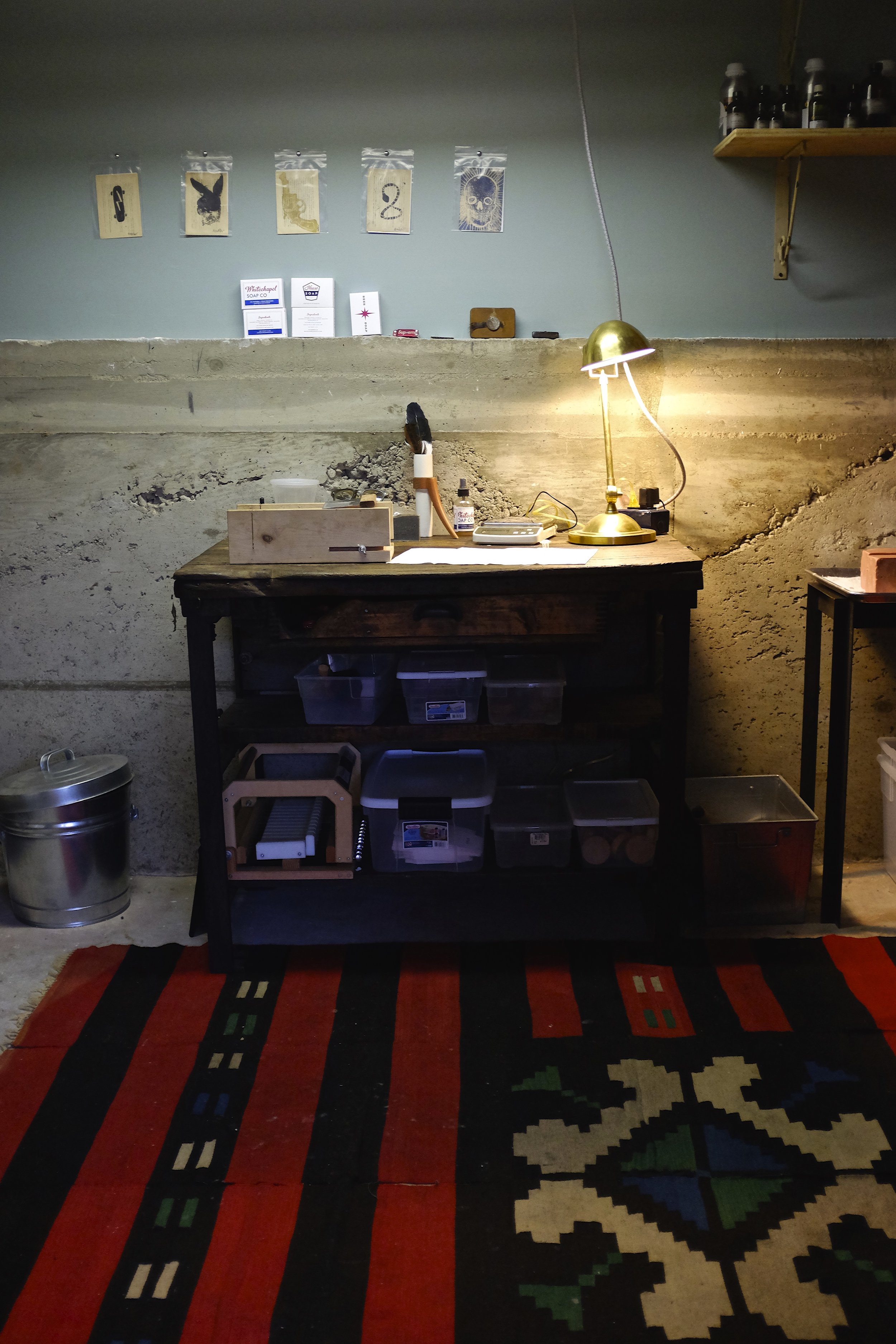
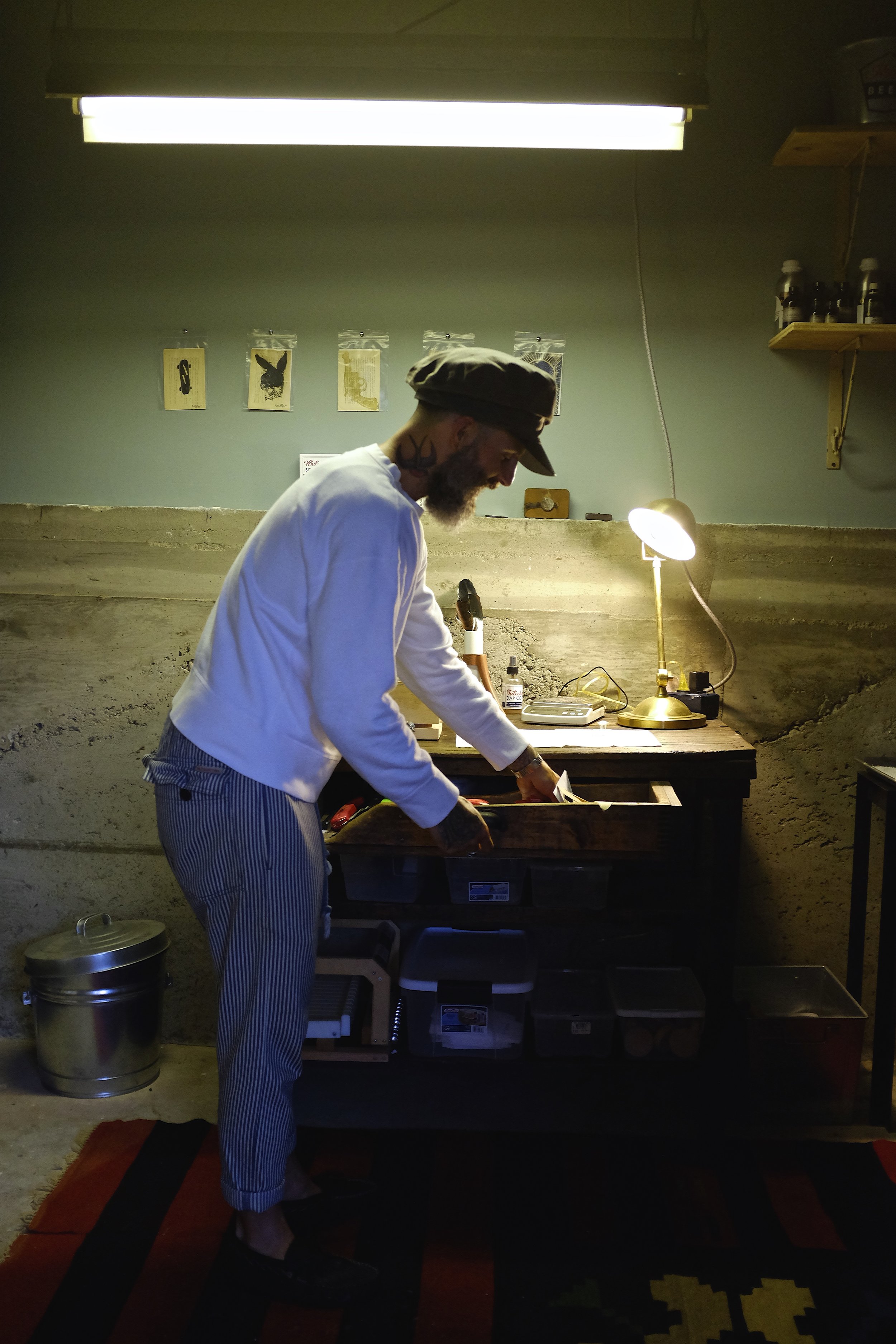
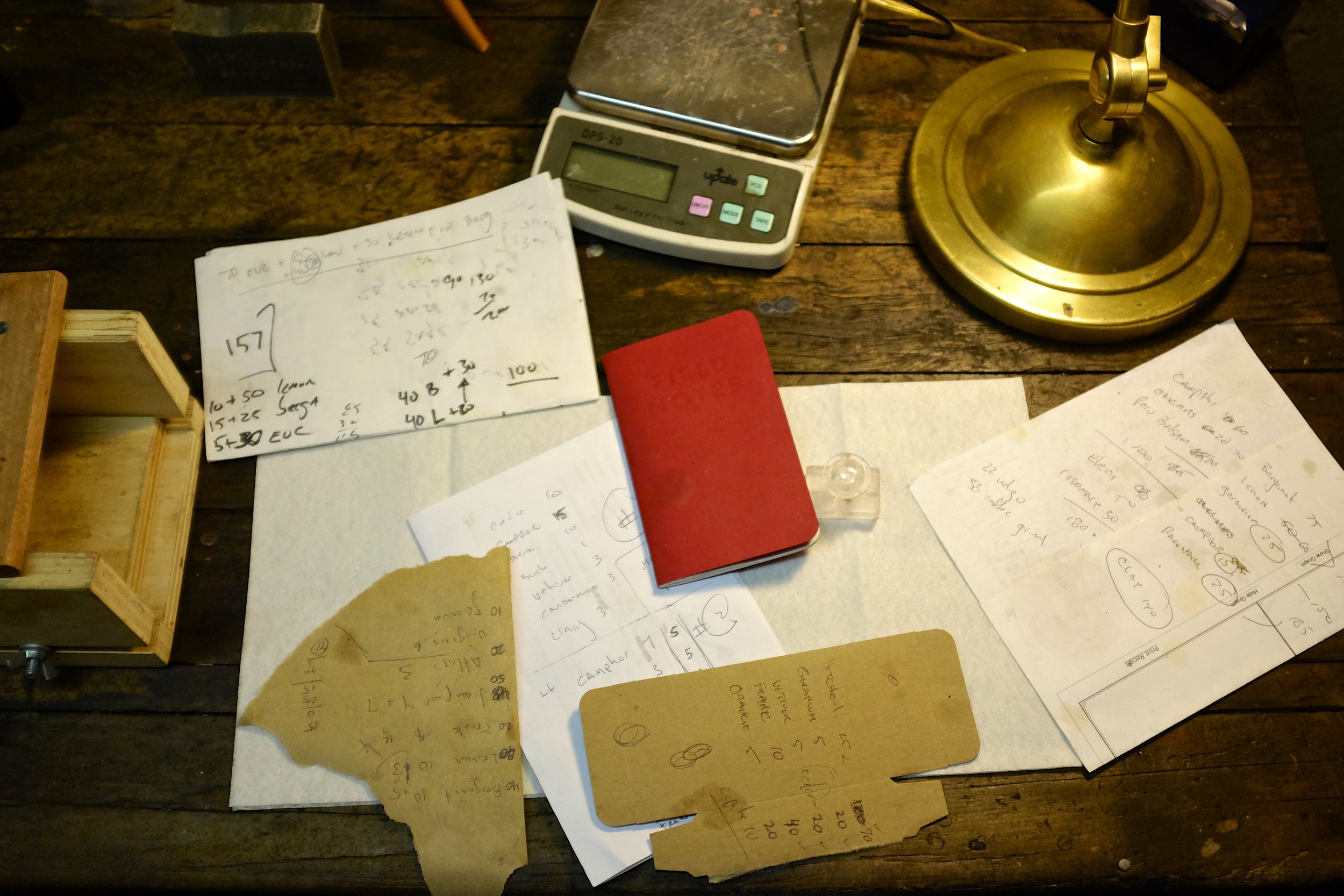
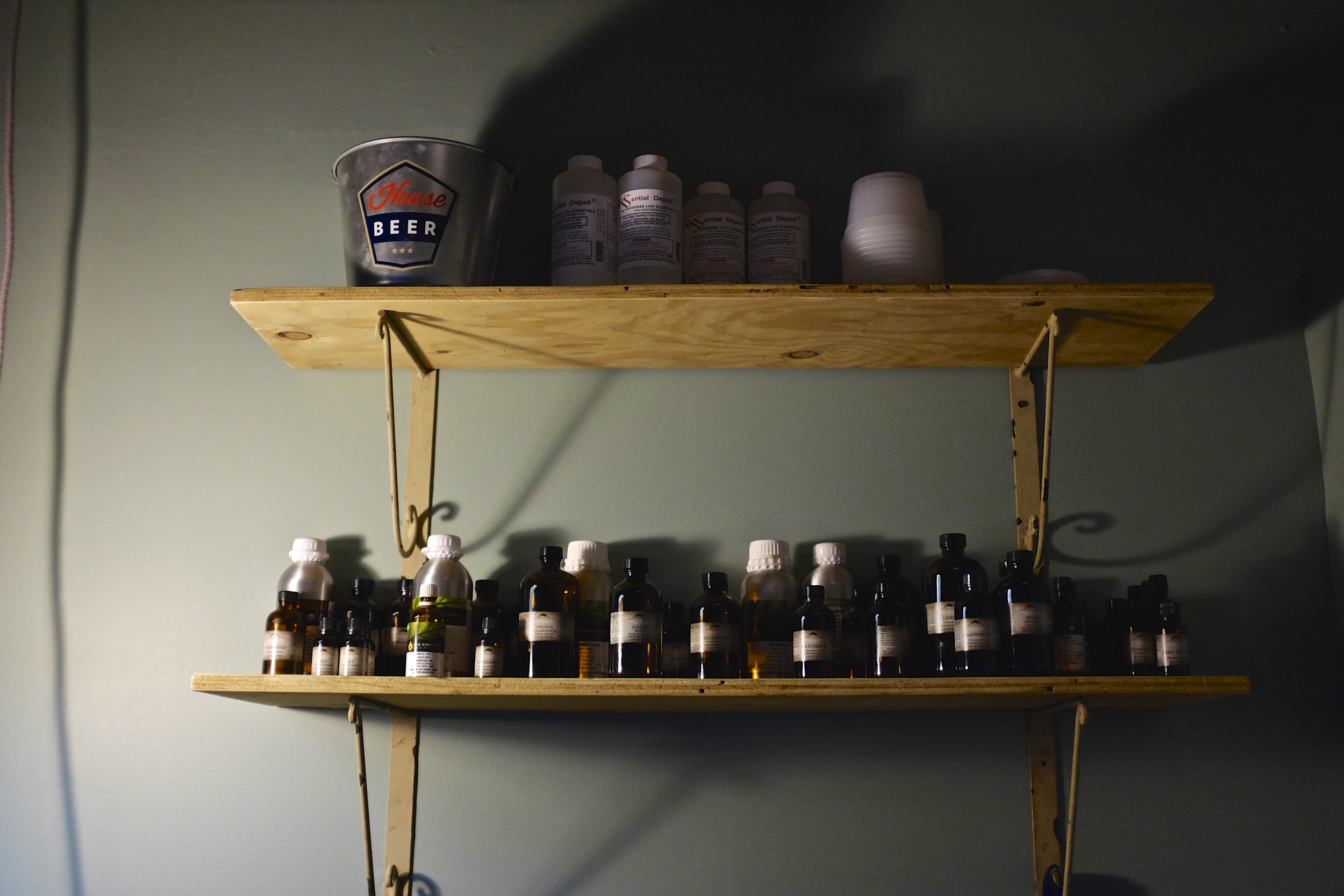
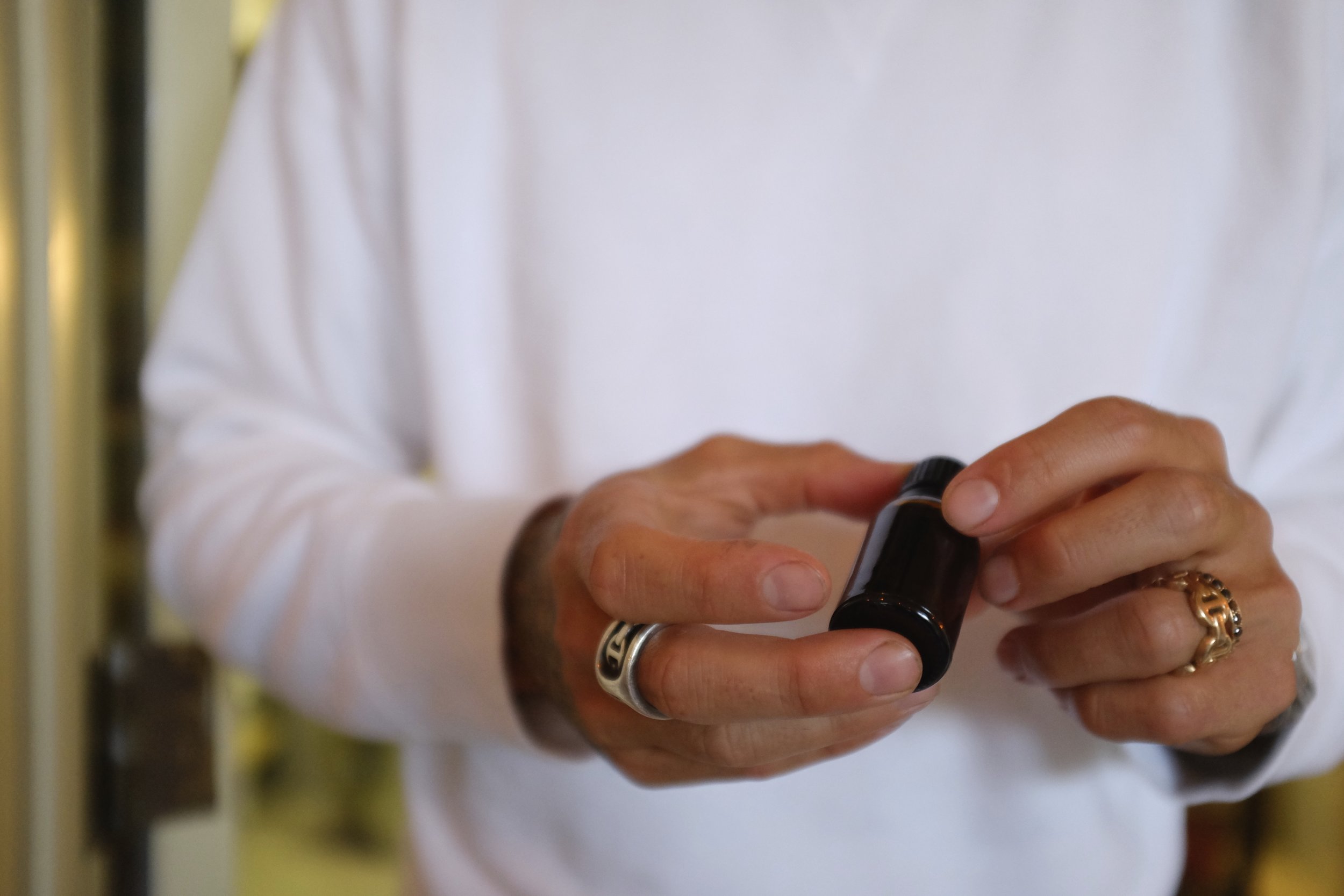
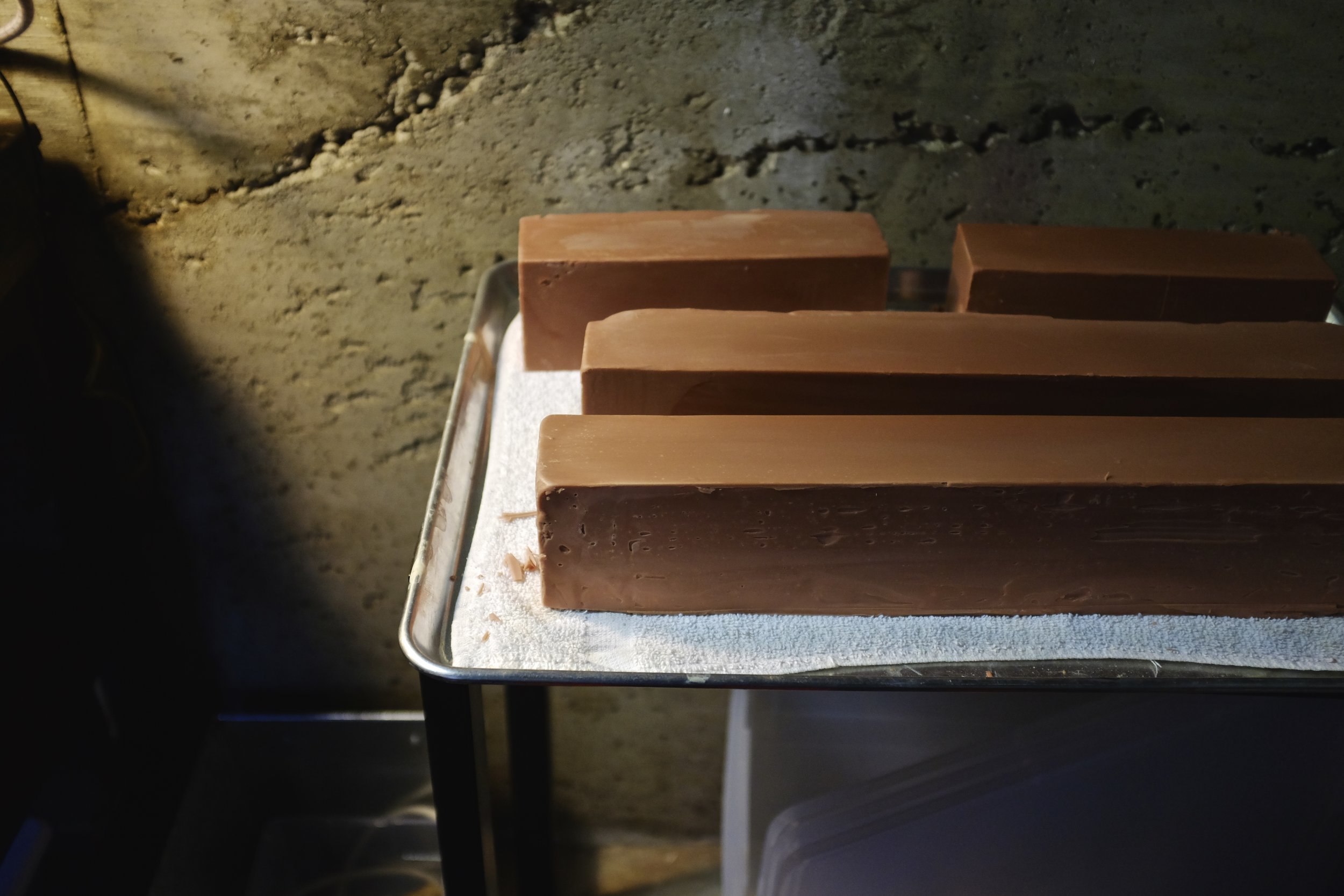
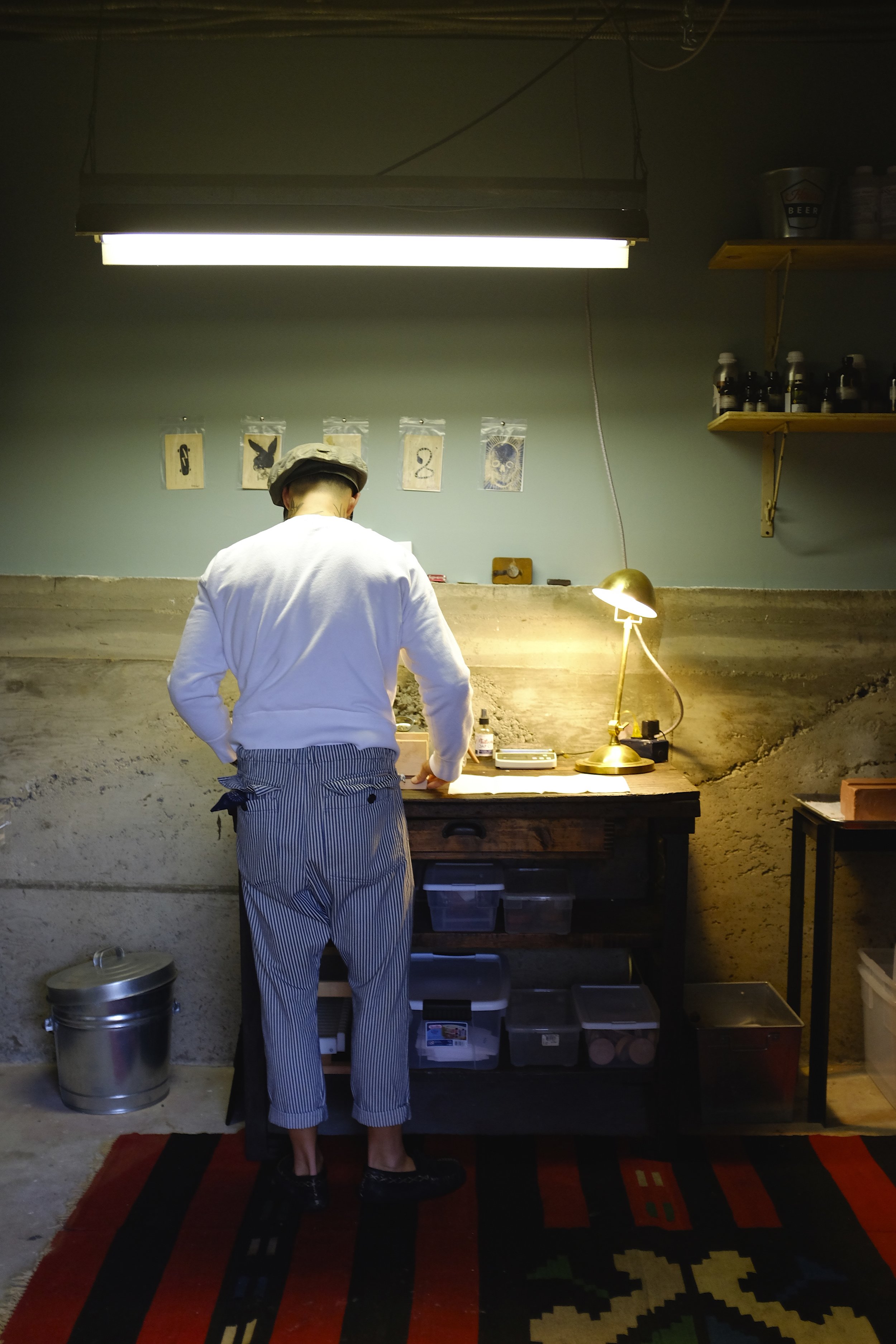
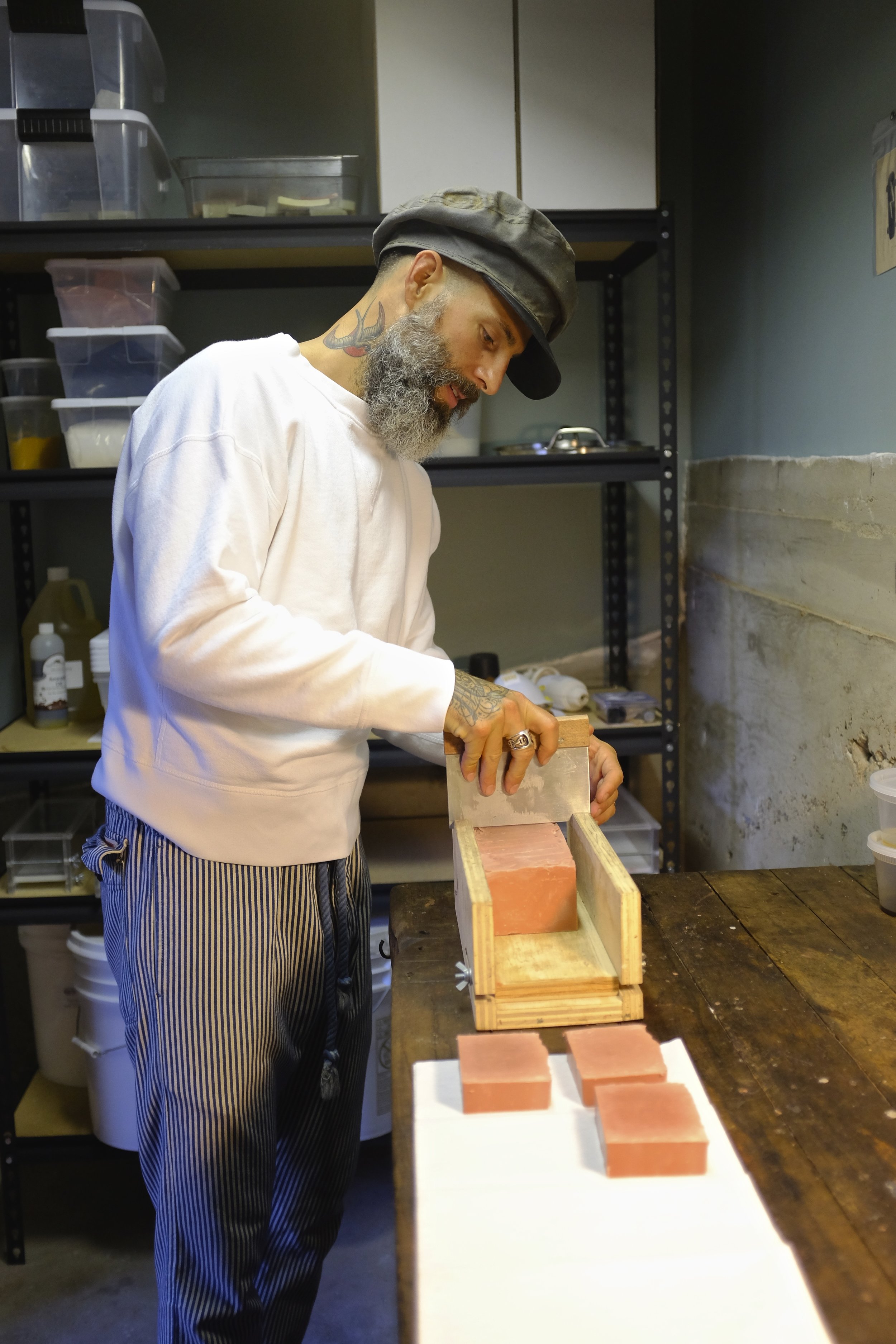
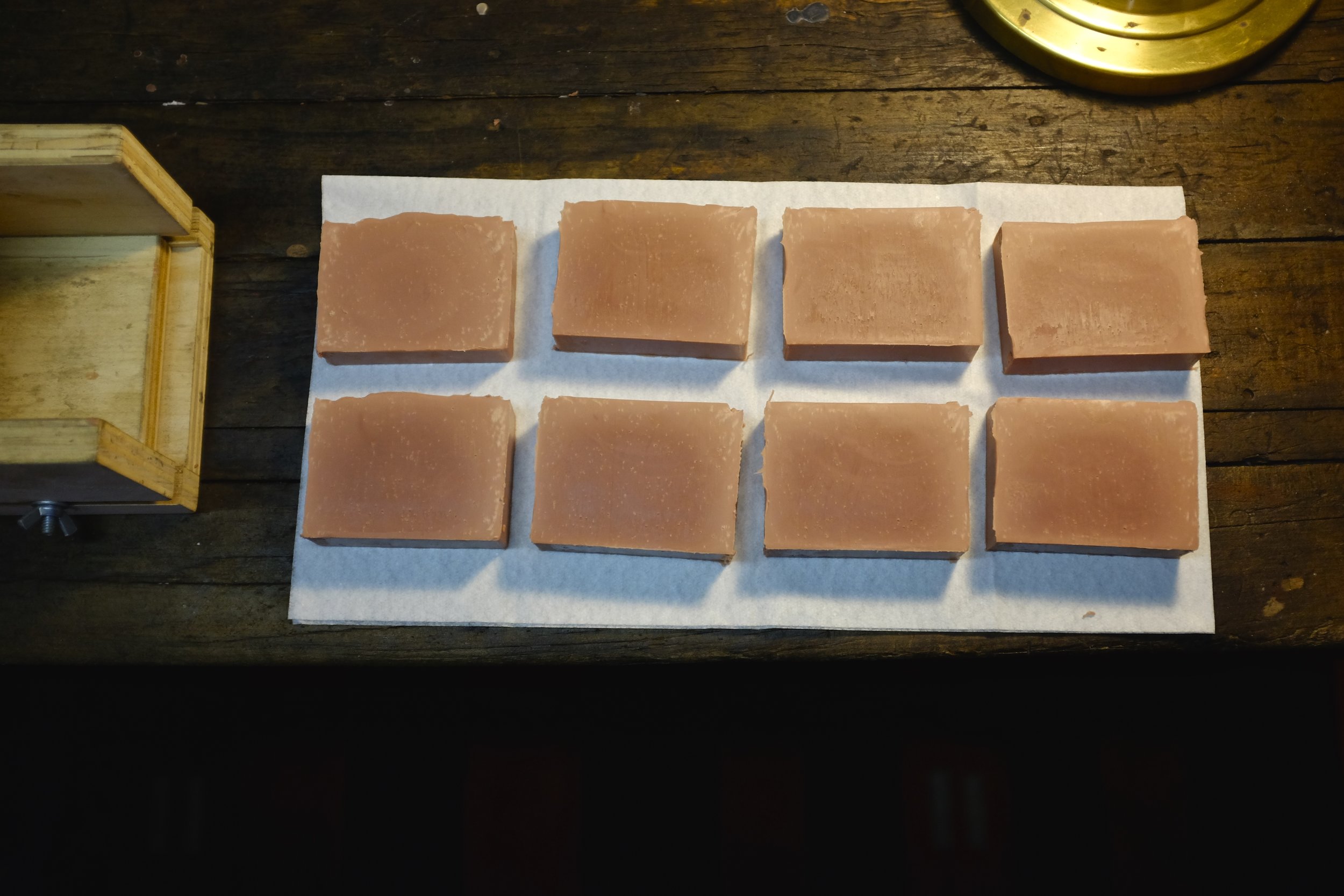
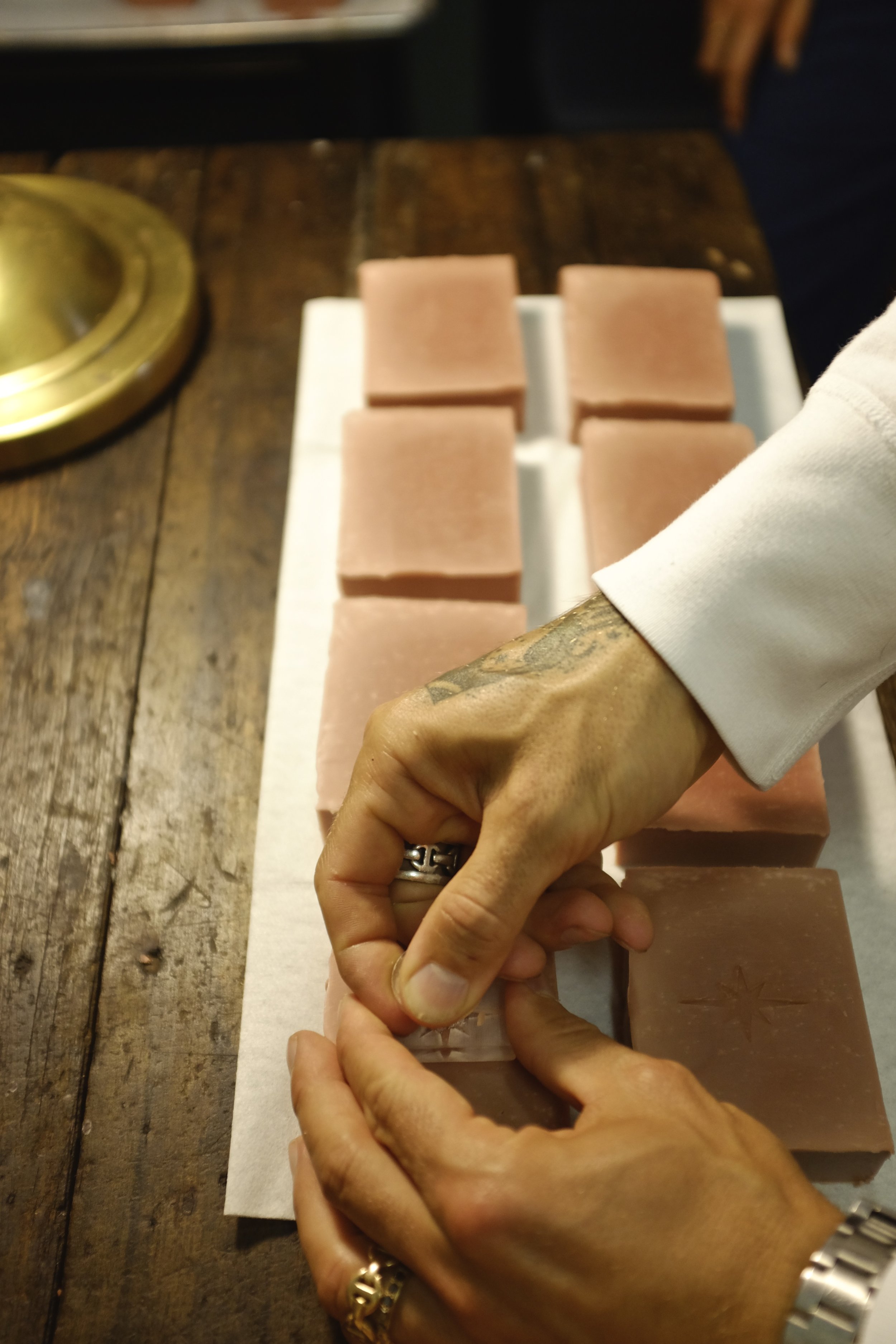
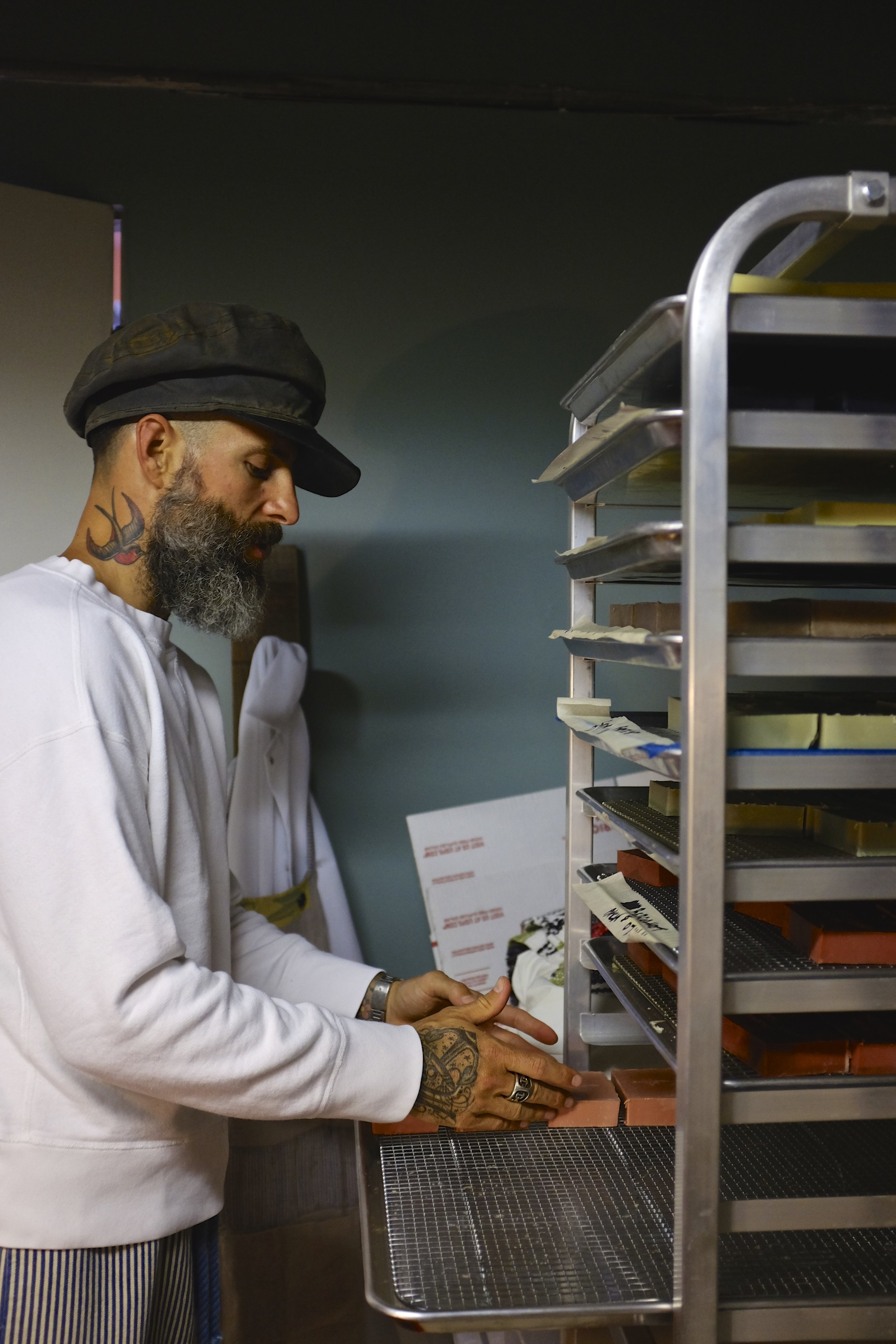
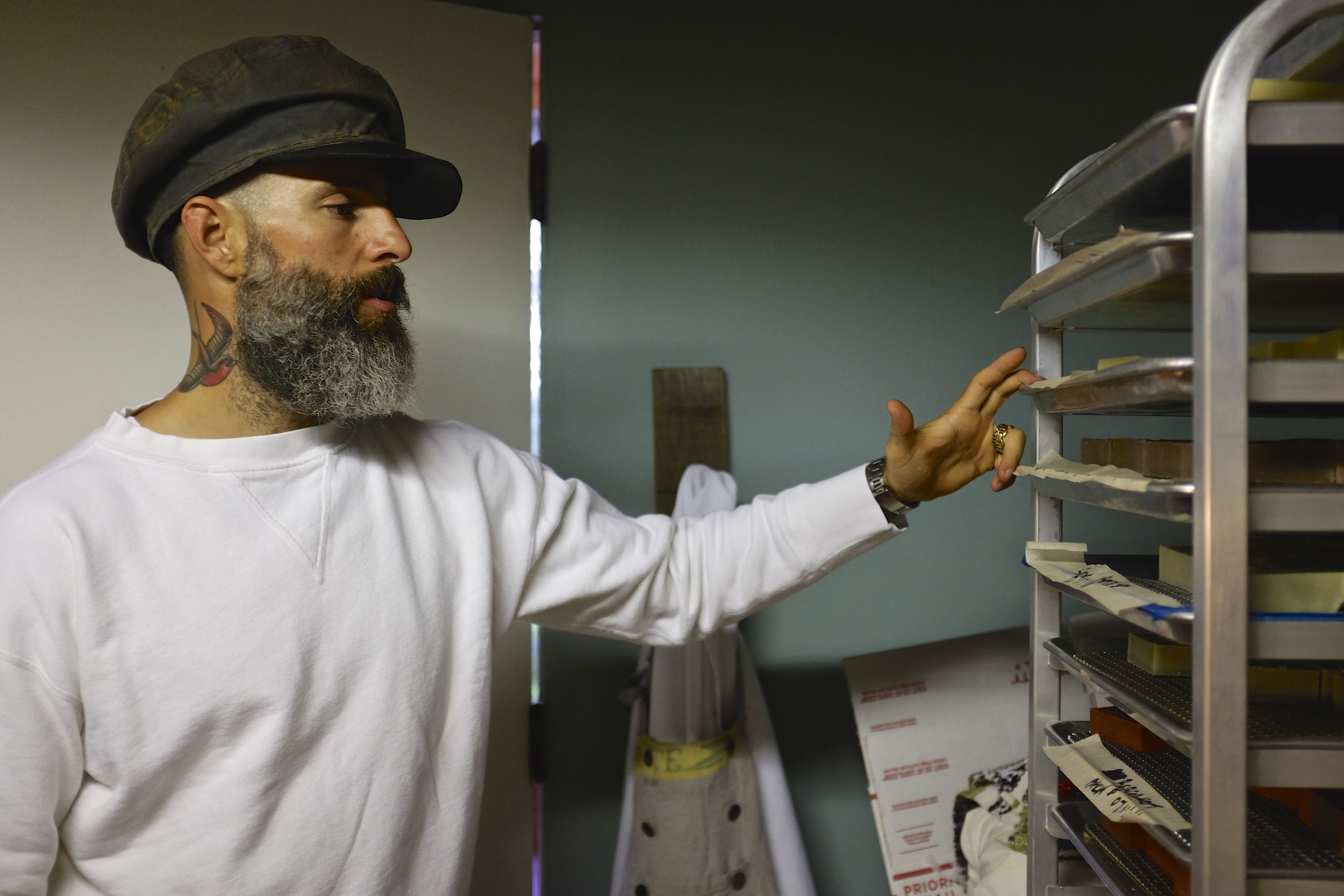
Jared Simons
Who are you?
I’m Jared Simons, humble soapmaker. I’m also a chef, I’ve been cooking for 20 years now.
What do you make?
Whitechapel is a soap company and I currently make bar soap. I was fascinated by the movie Fight Club and I really wanted to make bar soap. I find it to be all-purpose. I think there’s something unique about it, because for me everything is handmade, hand cut and hand finished. I actually finish each bar with a boot brush to kind of knock off the rough edge and give it a tumbled look. So each bar has a little character.
What is the significance of the Whitechapel name?
When I was in high school my buddy and I wanted to have a motorcycle gang one day and said we’d call it the Whitechapel Rippers. I eventually had a motorcycle and he didn’t live here nor did he have a motorcycle so I was kind of a one man gang. When I was thinking about names for the company, Whitechapel just sounded proper - it sounded old. I obviously dropped the ripper so Whitechapel Soap Company came to life.
For whom are your products intended?
I think everyone. I love barber product and men’s grooming. The first bar was Bay Rum, it was very masculine. I found that some were really into it and others weren’t. When thinking about who would buy the soap, I think women are the biggest customer. So I kind of shifted gears a little bit and then developed the lavender, made a few things more unisex if you will. And then I kind of made it really more of a unisex brand. I’m fascinated with early Americana and I just wanted to make something that you’d find on the shelf of a general store.
Right now I have five or six bars. I try to put a small story into each one. I think things are really inspired by a vintage California lifestyle. Being in California we’re close to the beach, close to the mountains, close to the desert. So all of those places provide a scene and scent. I think pulling from that and then taking everything that I’ve used in cooking, in the culinary world. For example citrus is really important in cooking, it’s a great acid and it works its way into a lot of soap.
What do you hope that your products will bring into your customers’ lives?
Hopefully they’ll be clean after they’ve showered or bathed with it. But I think in addition to physically using the bar, it’s really just taking a moment to look at the packaging, to look at the bar itself and the energy that was put into each one. Too often today there’s not a lot of love put into things and it shows. The details get lost. Like I said, I try to make each bar different. They’re all hand finished and that brush gives them that texture that you don’t see on every bar of soap that’s out there. So just making people think about the product itself.
Describe your workspace.
My workspace is a small room under my house because I was encroaching on the family room - my wife didn’t like that. It’s a small space. I think I just wanted to make it a clean space. Too often it can be easy to get cluttered, but after working in a kitchen all day for years, for me a clean and efficient workspace is important. I try not to put too much in there. Just keep it simple and hopefully it will work for a bit longer and hopefully I’ll grow it quickly at the same time.
Under what conditions do you work best?
Clean and organized. Right now I’m fascinated by a made to order manufacturing process with the soap. Someone turned me on to that. Cooking is very much that way. Each day, at least in a restaurant environment, there’s a set amount of reservations and you’re preparing the food for that day and trying to limit waste. In manufacturing, it’s kind of the same thing. I don’t want to make 300 bars of soap and have them sit here for the next year. Just kind of maintaining the proper work flow. You just kind of keep a nice even keel there versus being slammed or overwhelmed by your product that isn’t selling.
How have you learned what you know?
Cooking is science. I’ve been cooking a long time. If you don’t understand what’s happening when you’re cooking, it’s never going to make sense. With that, the cooking translates to the soapmaking. I wasn’t that interested in chemistry, I just needed to understand what was going on so I spent a lot of time just looking on the internet. Fortunately soapmaking and soaping is a really big hobby. So you have a lot of, how would I say, older women in the midwest that are crafting and soaping. There’s definitely a lot of material out there on it. You can read a lot of what to do and what to not do. I researched and understood - obviously you’re working with lye, which is something caustic, so just understanding why it is caustic, how it affects the chemical reaction. I think that’s just important to know so that you actually know what’s going on. Because if you’re mixing your lye solution and your oils and it’s too hot, they might seize up. Or if it’s too cold. There are a lot of variables that go into it. It was a bit of trial and error.
With the first few batches I made, I think I got really lucky with because they turned out. And then I started making different recipes by using different essential oils, clays, powders - different things cause the solution to react differently. In doing this I looked at how you build a scent or fragrance. There’s a base note, a middle note and a top note. I understand that, but I didn’t necessarily like that. So some of the things I’ve been mixing are more top note heavy. The idea is that it’s what you smell first and then it kind of dissipates and then you have those base notes that linger much longer. I’d just rather smell a top note a lot longer.
Describe your process.
So… Soapmaking. Pretty straightforward. I start with vegetable oil. It’s a blend of olive oil, coconut oil, a sustainable palm oil and shea butter. That’s essentially mixed with a sodium hydroxide solution, which is the lye. It’s lye and water, which is the alkaline solution. You mix that with the oil and you’re essentially creating a chemical reaction, which is making soap. Then you mix it with a simple hand mixer and add the essential oils for scent, and different additives. So things that I use are the black walnut powder, charcoal - right now I’m using the green clay as well as the rose clay. The soap then gets poured into the mold, it’s set for 3-4 days, popped out of the mold, hand cut, hand stamped and then on the rack to dry. The curing time is 4-6 weeks. But the actual process of making a batch of soap is really just a couple hours. It’s a couple hours and there’s about 10 minutes of active time. About an hour to an hour and a half of kind of waiting around. That’s really it, the soap making is easy. Probably the most physically challenging thing about it is not in the soapmaking but the finishing process: I hand finish each bar. I take a towel with my index finger and I rub each one and then I brush them. So that takes a bit of time.
How do you choose and source your ingredients?
I kind of started googling who makes what, where can you get the best oil for soapmaking or whether certain products were organic. It’s just like food. Processed food has additives and preservatives that, while they make a shelf stable product, your body doesn’t need them. I think it’s the same with any product, any cosmetic. Do you need chapstick? No, you could put olive oil on your lips. You can use so many things in their natural form - it’s just about minimizing.
The same is true with the carrier oils: I use all vegetable-based oils. And it’s the same thing with the essential oils. I use pure essential oil, there’s no fragrance oils, which are synthetic. They’re made in a lab. If you wanted cotton candy soap, you could buy a cotton candy scent. That’s fine, but I don’t want to use fragrance. It’s a matter of weeding through everything that’s out there and finding reputable owners. Just like with anything else there’s kind of the entry level stuff, you know large quantities. Or you can go to more high end luxury-type suppliers, which is where I find myself going. The oils are better quality, they make a better product.
How long can the soap last?
That’s the catch - soap can last indefinitely. Because I make cold processed soap, once the soap batch is made it takes 4-6 weeks for it to cure. So when someone calls and says they need more soap for their store, I need to make sure I have enough in stock otherwise they’re going to be waiting. Like a customer order, I have to quote someone 7 weeks for a lead time for them to decide.
But the soap, once made, lasts indefinitely. It will only dry out and ultimately what will happen is there will be no water moisture left in it, so it will be rock hard. It will actually last you longer in the shower. So you’ll see that olive oil soaps will literally age. They’re like rocks and will last forever. Unfortunately, if you had a bar of soap that sat around for a couple of years, the essential oil is also dulling, evaporating so it won’t be as fragrant. I have bars - bits, chunks - in like a junk pile. Pieces that I pull out, I know they’re 6, 7, 8 months old. You take ‘em in the shower and get ‘em wet and they smell great.
What was the process of building your own business?
For me, Whitechapel is more of a creative outlet born out of wanting to be nothing more than Tyler Durden making soap and having fight club. My wife said it couldn’t be one of my hobbies like motorcycles or other things in the garage that just sit there, she said I had to figure out how to make it a business. For me that wasn’t a big deal. I’ve owned two of my own restaurants, my first restaurant when I was 22. So somehow I figure things out. Cooking obviously made learning how to make soap much easier. But as far as building the business, you basically just set up a corporation, open a bank account, get some insurance and at the end of the day that is really it.
With soap there’s really no regulation on it. You need to make sure that anything labeled soap has lye and fat, and it’s not necessary to put your ingredients although I do. Most people buying a luxury soap will want that. Then you just need the net weight, and you can sell soap. Then the creative stuff came easy, that I can bang out.
I set out in my mind that I was just going to sell soap retail, but then realized that people had to find out about it somehow. That is how I started doing the wholesale stuff and finding stores like RTH - stores that I would shop in or I thought had the right demographic for the soap. At the end of the day it is a luxury product; the bars retail for anywhere from $16 to $18.
Honestly, of the stores wholesaling it, more than 50% of purchases are based on aesthetic alone, which I was excited about. I made t-shirts because of the aesthetic - people like the red, white and blue, they like the logo. Really at this point it’s about marketing and getting more people. Some people that purchase off the website, once they use it and if they enjoy it they obviously buy more. Customers regularly order 3, 4, 5 bars, then I’ll see in a couple of months that they’ll be ordering more. It’s kind of an organic grow.
What’s the most challenging part of your process? Where do you find the most ease?
I don’t know if there’s anything that challenging. Maybe it’s marketing a little bit for me. Coming from a creative side I’m not a salesman, so that’s probably the most challenging.The ease is just physically making the soap. I enjoy working with my hands. I think that, like many other things, is a skill. I enjoy making things. I grew up building cities with Legos and using my hands to do stuff. I would like to be the next Martha Stewart, but for guys. Guys today don’t know how to do anything. I see these kids, whether they’re a culinary student or people that you meet in the kitchen and I’m like what do you do? What do you make? I think working with your hands is fun.
What has soapmaking taught you?
Probably a little more patience. I’ve been cooking so long so there aren’t a lot of things I don’t know how to do in the kitchen. Since soap is something new, it reminds me to just take the time to know what is going on and then understand how to manipulate the recipe and process to get to the result.
How has your practice shaped your hands?
They’re clean. It’s honestly therapeutic. Because I’m working with fat and oil, I’ll have the oil and the essential oil on my hands and kind of just rub it all together. So they’re well moisturized. That’s it.
Jared Simons in Los Angeles, California on August 25, 2016. Photographs by Julia Girardoni.
